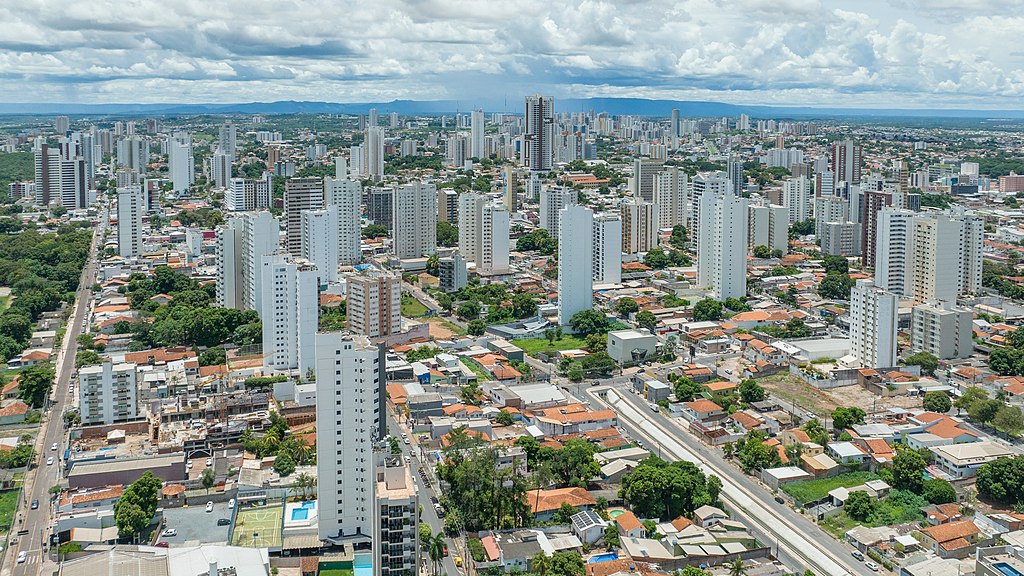 Cuiaba, Mato Grosso, Brazil (source: Arne Müseler / www.arne-mueseler.com, CC BY-SA 3.0 DE, via Wikimedia Commons)
Cuiaba, Mato Grosso, Brazil (source: Arne Müseler / www.arne-mueseler.com, CC BY-SA 3.0 DE, via Wikimedia Commons)As part of the “Geothermal Applied to the Cooling of Agro-Industrial Buildings in the Context of Sustainable Development of Mato Grosso” project, two test environments have been built at the Cuiaba campus to assess the feasibility of geothermal cooling . One environment uses water as the working fluid, while the other one uses air. They both tap into a heat exchange system installed in a 3-meter-deep trench with a length of approximately 25 meters.
“Both [environments] work because the soil temperature, at these depths, remains relatively stable throughout the year and, in our case, generally lower than the external temperature,” said Professor Luciane Cleonice Durante, Project Coordinator.
“The research is focused on agro-industrial buildings and we are mainly thinking about warehouses, whether they are workplaces or storage spaces, but the same type of technology can be applied to houses or buildings”, further added Professor Karyna de Andrade Carvalho Rosseti.
Professor Alberto Hernandez Neto of USP say that the geothermal system will not be able to completely replace the existing temperature control systems, but it can potentially reduce electricity consumption by 40%, thus reducing long-term operating costs while providing a sustainable alternative for cooling.
Geothermal cooling has been well-studied in many parts of the world, such as in Spain and the UAE, but there are only a few studies in Brazil on its application. The ongoing project will facilitate future uses of geothermal cooling in Brazil by providing guidelines on calculating project dimensions, investment needs, and return forecasts.